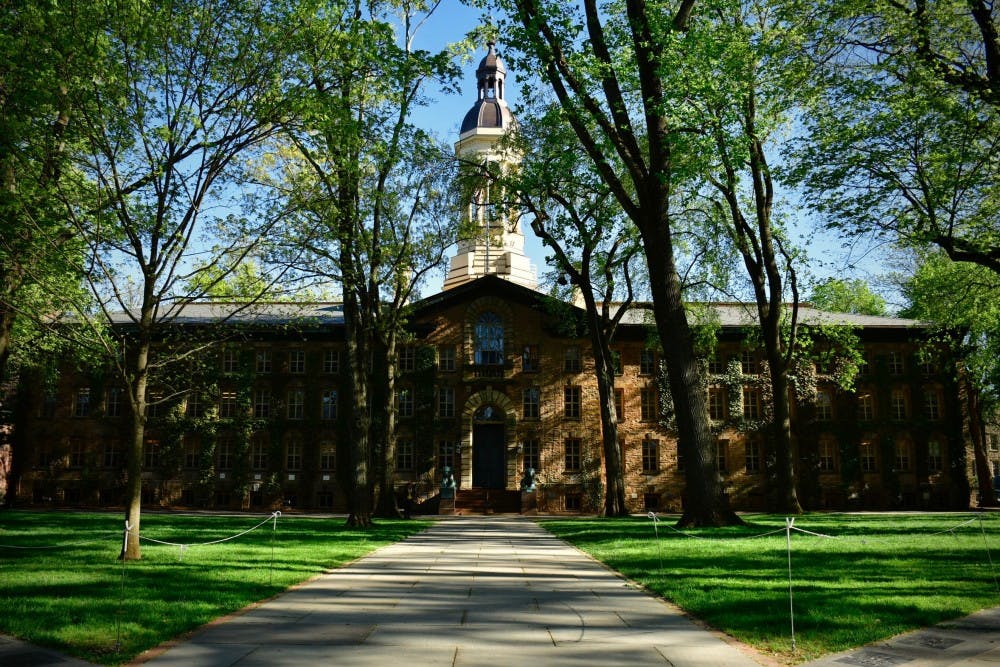The University announced Wednesday afternoon that it would not accept the over $2.4 million in federal funding it had been allocated through the Coronavirus Aid, Relief, and Economic Security (CARES) Act.
At 3:30 p.m., Harvard University followed suit with a similar statement. Previously, President Donald Trump had criticized Harvard for receiving CARES funding.
“Congress allocated CARES Act Higher Education Emergency Relief funding to colleges and universities to ensure that they could support Pell grant recipients and other students impacted by COVID-19,” wrote Deputy University Spokesperson Michael Hotchkiss in a statement to The Daily Princetonian. “Princeton, which did not request these funds, has examined whether it could use them in a manner consistent with congressional intent and guidance provided by the Department of Education.”
Hotchkiss cited the University’s no-loan financial aid program and stated that such programs are designed to provide “exceptional levels of support to our students, including DACA beneficiaries and international students.”
DACA refers to Deferred Action for Childhood Arrivals, the Obama-era immigration policy that defers deportation for some undocumented individuals who arrived in the U.S. as children. On Tuesday, April 21, the Department of Education clarified that DACA recipients would be ineligible to receive emergency aid allocated through CARES.
“We remain committed to providing this support,” Hotchkiss wrote. “We have also taken steps to meet additional needs resulting from COVID-19, and will continue to look for opportunities to do so throughout this crisis. Therefore, we have determined that the University will not accept this funding.”
Harvard University announced a few hours later that it, too, would turn down the government funding.

“We are concerned that intense focus by politicians [and] others on Harvard in connection with the program may undermine participation in a relief effort Congress created & the president signed into law for the purpose of helping those whose financial challenges may be most severe,“ stated a 3:31 p.m. announcement on Harvard’s Twitter account.
Originally, Harvard had opted to accept its allocation and, under public scrutiny, devote 100 percent of its CARES funding to student assistance.
President Trump and several members of Congress contended, however, that in light of its $40.9 billion endowment, Harvard should not have received federal assistance. Texas Senator Ted Cruz ’92 referred to Harvard’s decision as “ridiculous,” and Trump tweeted last night that “Harvard should give back the money now.”

Signed into law on March 27, the CARES Act was enacted “to provide direct emergency cash grants to college students whose lives and educations have been disrupted by the coronavirus outbreak,” according to an April 9 press release.
The Act delivers more than $6.28 billion to American colleges and universities, part of the $14 billion Higher Education Emergency Relief Fund allocated to educational institutions in the wake of the COVID-19 pandemic.
Exactly half of the University’s allocation — $1,212,050 — was designated for emergency financial aid grants, which were to assist students in meeting expenses such as course materials, technology, food, housing, health care, and childcare. The remainder would have been left to the University’s discretion.
In addition, the University would have retained the power to internally distribute the funds as it saw fit. According to a letter written by Secretary of Education Betsy DeVos to college and university presidents, “each institution may develop its own system and process for determining how to allocate these funds, which may include distributing the funds to all students or only to students who demonstrate significant need.”
Columbia University and Cornell University were each granted about $12.8 million from the CARES Act, followed by the University of Pennsylvania at $9.9 million and Harvard University at $8.6 million. Yale University, Brown University, and Dartmouth College were all allocated between $3 million and $6 million in funding.
The University was set to receive the least funding out of all Ivy League institutions, despite Dartmouth College having a smaller enrollment and lower rate of Pell-eligible students.
According to DeVos, college and university allocations are “weighted significantly by the number of full-time students who are Pell-eligible, [taking] into consideration the total population of the school” according to the most recent data.
As of 4 p.m. on Wednesday, the University and Harvard are the only Ivy League institutions to have released statements announcing they would not accept CARES Act funding.








